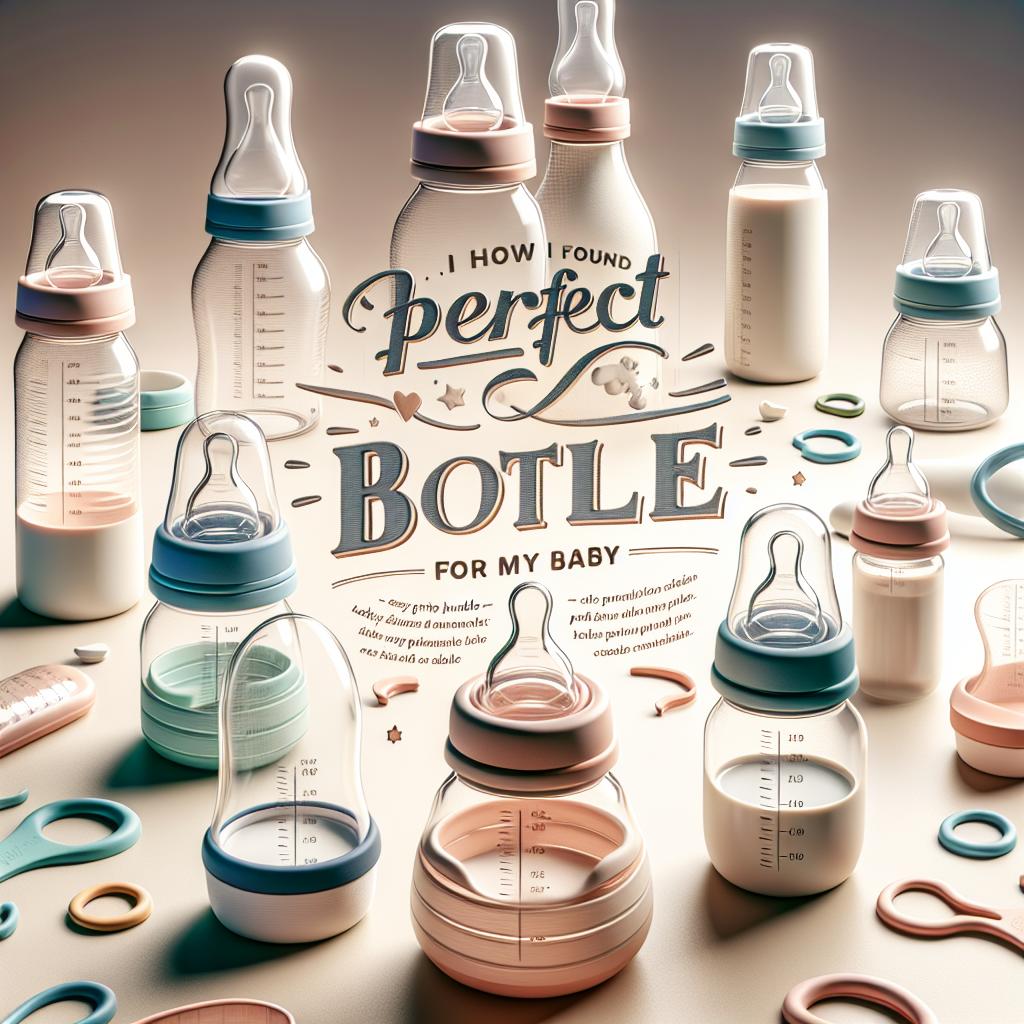The Impact of Feeding Choices on Long-Term Health
The Significance of Feeding Choices
One of the most critical decisions any parent will face is determining their baby’s diet. It’s essential to consider the long-term implications of these early feeding choices because they can significantly impact your child’s health and development. This article explores the effects of various feeding options on your baby’s long-term health, providing valuable parenting advice.
The Role of Bottle Feeding
While breastfeeding is a common choice, many parents choose or need to include bottle feeding. The quality and design of the bottle can largely affect the baby’s feeding experience, and indeed, their health. To ensure the best feeding experience, it’s crucial to choose bottles that make feeding a joyful experience.
Impact of Feeding Choices on Baby’s Health
Feeding choices impact a baby’s health in various ways. Here are some critical aspects to consider:
- Nutrient Absorption: The type of feeding can influence the baby’s ability to absorb essential nutrients. Breast milk, for example, is known for its superior nutrient absorption, but the right baby formula can also be very effective.
- Gut Health: Certain feeding options might positively impact the baby’s intestinal health, fostering a healthy balance of gut bacteria.
- Immune System Development: The nutrients and antibodies present in breast milk can help enhance the baby’s immunity significantly.
- Psychological Development: The feeding method can also affect the infant’s psychological growth, as breastfeeding often promotes a stronger bond between the mother and baby.
Scientific Testing and Baby Bottle Quality
When it comes to bottle feeding, the quality and design of the bottle are crucial. Manufacturers often conduct extensive scientific testing to ensure that their bottles are safe and beneficial for the baby’s health. This process involves examining the flow rate, the baby’s suction, and the overall usability of the bottle to guarantee a delightful feeding experience for both the baby and the parents.
Conclusion
Ultimately, the feeding choices you make for your baby can have profound implications for their long-term health. Whether you choose breastfeeding, bottle feeding, or a combination of both, it’s important to make informed decisions based on thorough research and professional advice. It’s worth remembering that every baby is unique, and what works best for one might not be the most suitable option for another.
The Influence of Breastfeeding and Formula on Health
Research has shown that both breastfeeding and formula feeding can impact a child’s health in different ways. Breastfeeding, with its unique blend of proteins, fats, and antibodies, is often viewed as the gold standard for infant nutrition. The American Academy of Pediatrics acknowledges breastfeeding’s unique capability to optimize health outcomes for infants.
However, certain situations may necessitate the use of formula. Some mothers may be unable to breastfeed, while others may choose not to for personal or medical reasons. In such cases, baby formula serves as a practical alternative. It, too, can provide your baby with all the necessary nutrients to grow and thrive.
The Connection Between Feeding Choices and Long-Term Care
The decisions you make about feeding your child can also have long-lasting effects on their health. Nutrition in the early years of life forms the basis for long-term health outcomes, playing a significant role in growth, development, and disease prevention. Infant feeding choices might affect the risk of developing chronic diseases like diabetes, obesity, and heart disease later in life.
According to National Institute on Aging, proper nutrition during infancy can potentially diminish the need for long-term care in the future. The nutritional choices made during this period can considerably impact a person’s quality of life and health in the long run.
Feeding Choices and Infants’ Psychological Health Impact
Feeding doesn’t only affect physical health; it also has a substantial impact on a baby’s psychological development. For instance, the skin-to-skin contact that takes place during breastfeeding can foster an emotional bond between mother and baby, contributing to the baby’s sense of security and emotional development.
Although bottle feeding may not offer the same skin-to-skin contact, it still can facilitate bonding time. Parents can hold their baby close, imitating the intimacy of breastfeeding. It’s about the quality of interaction and love provided during feeding time, regardless of the feeding method employed.
The Future of Infant Feeding
As science advances, so does our understanding of the long-term health implications of infant feeding choices. Innovative research programs are currently investigating the links between infant feeding methods and health outcomes in adulthood.
One such research published in the National Center for Biotechnology Information discusses the influence of infant feeding practices in developing non-communicable diseases in later life. These studies can further inform parents about the long-term impact of their infant feeding choices and guide healthcare professionals in providing better advice to families.
To wrap it up, always remember that every child is unique. What works for one might not work for another. It is crucial for parents to be informed and feel supported in their feeding choices, always considering their baby’s needs and preferences.






